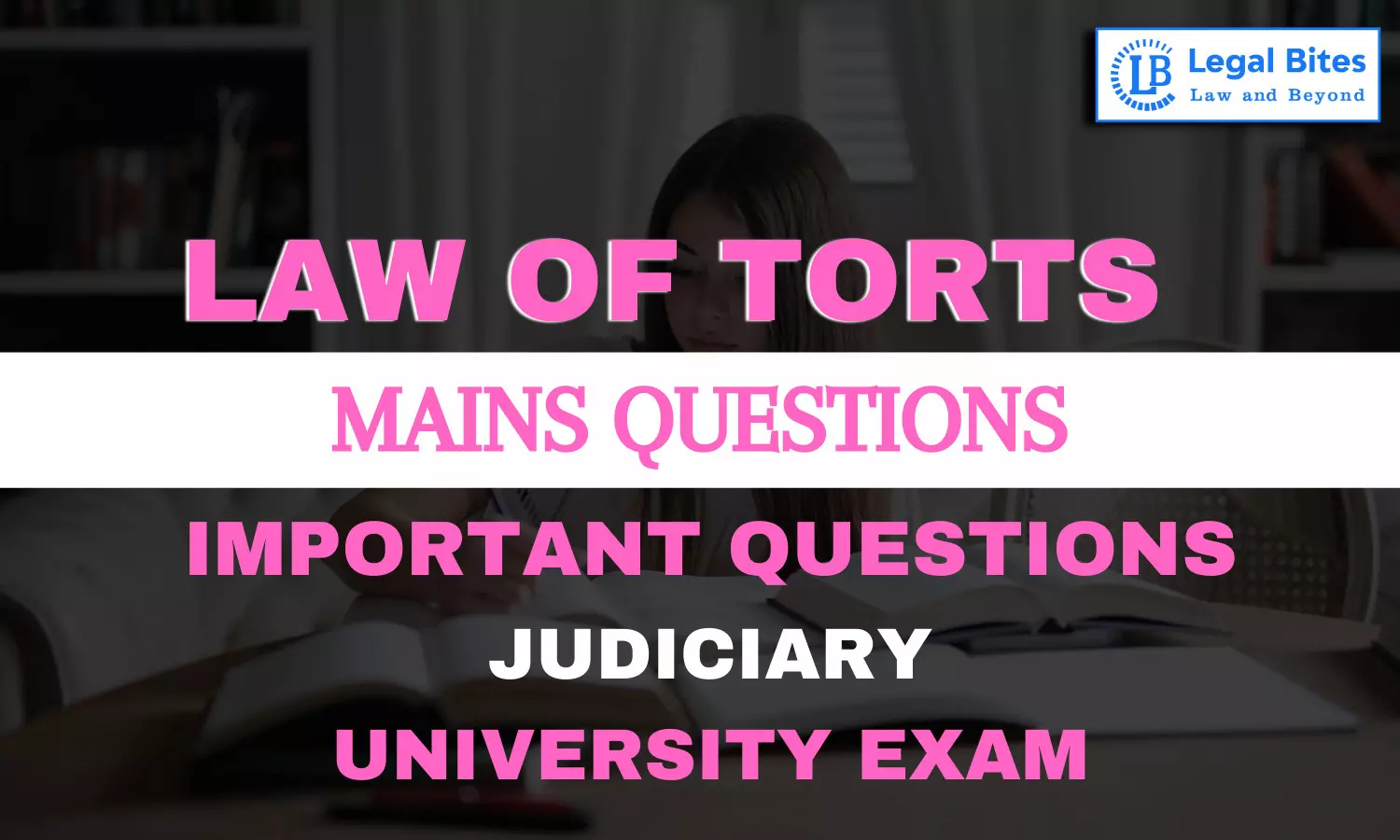Law of Torts Mains Question Answer Series 6: Important Questions for Judiciary Exams | Part – VI
Legal Bites presents the Law of Torts Important Question-Answer Series. The questions listed here will help students study for various Competitive and University Exams.

Legal Bites presents the Law of Torts Important Question-Answer Series. The questions listed here will help students study for various Competitive and University Exams. Candidates can use Legal Bites' list of questions to help them determine the most important and often asked questions and practice their aptitude and knowledge.
Answering questions is a continuous process that is an inevitable component of any test preparation, as we all know. A well-written response displays not just a candidate's knowledge but also his or her ability to tailor the content to the question's requirements.
It is vital to prepare for this exam to pass it thoroughly. To attain mastery over the subjects studied, applicants only need to keep practising these questions in the months coming up to the examinations. Following it, the candidate's confidence level, as well as their scores, will vastly improve.
Law of Torts Mains Question Answer Series 6: Important Questions for Judiciary Exams | Part – VI
Question 1:
Choose any of the two topics given below and elucidate the distinction:[DJS 2019]
(a) Tort and Breach of Contract
(b) Tort and Quasi-Contract
(c) Tort and Bailment
Question 2:
"Prima facie everyone has the capacity to sue and be sued in tort, but there are certain persons who have no capacity at all or only a limited capacity." Who are these persons? [BJS 1991]
Question 3:
"Legal Damage is neither identical with actual damage, nor is it necessarily pecuniary." In light of this statement, discuss the significance of legal damage with a suitable example from case law. [BJS 1987]
Question 4:
Discuss the liabilities of joint tortfeasors and explain if a right mutual contribution or indemnity is available to them. Refer to the difference between English and Indian Law of the subject, if any. [UPJS 1987]
Question 5:
The defendant sent an unsealed letter containing a defamatory matter to the plaintiff. The letter was opened by an inquisitive servant of the plaintiff. Is the defendant liable for defamation. [BJS 1977]
Question 6:
Explain the doctrine of remoteness of damage in the law of torts. In this context discuss the test of reasonable foresight and directness and state as to which principle is more practical and just? [UPJS 1991]
Question 7:
The maxim 'res ipsa loquitur' is not a rule of law. It is a rule of evidence benefiting the plaintiff by not requiring him to prove negligence. Prove the above statement by explaining the maxim with reference to judicial decisions. [BJS 2011]
